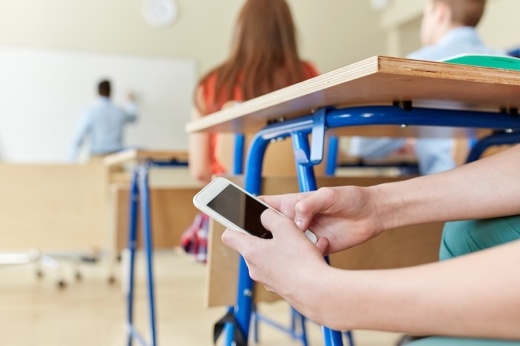What happened?
The board unanimously approved revisions to its FNCE (Local) policy regarding cellphone use by students. The revision adds updated guidelines for cellphone use by elementary, middle and high school students, according to the meeting agenda.
While the revisions clarify when students are allowed to use their cellphones, consequences were not attached to the board policy, but they will be outlined in the student handbook, according to officials.
Board President Shannon Braun said they had considered attaching consequences to the policy, but the board isn’t a disciplinarian.
“We were trying to use this as an opportunity to set the standard and allow the conduct to be outlined in the student handbook,” she said.
The details
Kalee McMullen, executive director of instructional leadership, presented details on the policy revisions before the board voted. Unless the phones are being used for an approved purpose, devices are expected to be turned off and stowed away during the instructional school day.
- Elementary school students must turn off their cellphones during the school day and stow them in their backpack, purse or locker.
- Middle school students must turn off their cellphones during the school day except during lunch period. Otherwise, devices must be stowed in the student’s backpack, purse or locker.
- High school students must turn off their cellphones during the school day except during lunch period, passing periods and free periods. Otherwise, devices must be stowed in the student’s backpack, purse or locker.
“There’s more need for that intermittent communication during the day, which would result in them being able to check their phones during passing periods,” she said.
Consequences for using a phone during unauthorized times are not outlined in the polic,y but they will be added to the district’s student handbook, McMullen said.
- First offense: The cellphone will be confiscated and held until the end of the period.
- Second offense: The cellphone will be confiscated and turned into the main office. Office staff will notify the parent, and the student can pick up the cellphone at the end of the school day.
- Third offense: The cellphone will be confiscated and turned into the main office. Office staff will contact the parent who has to come pick up the phone.
- Fourth offense: The cellphone will be collected and turned into the office. Office staff will contact the parent who has to pick up the phone after paying a $15 fee.
Quote of note
“The purpose here tonight in us adding these revisions to FNCE is really to maximize instructional time,” Superintendent Brad Schnautz said. “Our core business here and our charge is teaching and learning, and so we want to do everything we can to maximize those instructional minutes.”





